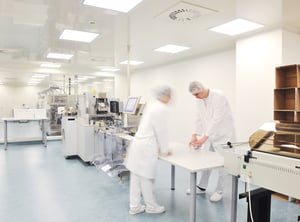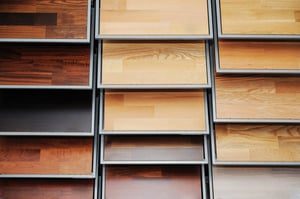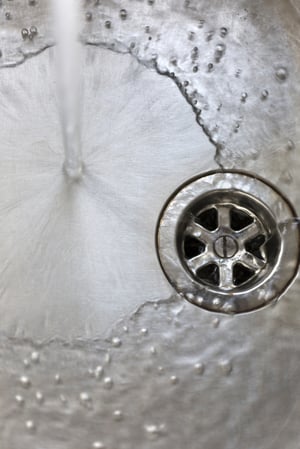As technology continues to evolve, you know the importance of using laboratory furniture that can adapt to new regulations, safety requirements and operational changes.
The right lab casework can impact the functionality of your workspace, and is more than a storage unit. Whether it’s a medical laboratory, manufacturing space or research facility, casework is an essential component to an efficient workspace.
If you’re in the process of adding casework to your facility, there are a number of critical factors to consider. This article explores some aspects you should take into account as you navigate the choices available to you, and offers tips on which casework details may best fit your needs.
Unique Requirements
Lab operations are intricate, each unique in its own way. It is not “one-size-fits-all” when it comes to casework. 
Instead, choosing casework for your lab should be a customizable experience, allowing you to meet your needs and help ensure the best results from your lab. Working with a company that can customize casework based on these unique requirements in design and manufacturing should be a top priority.
This is especially important in labs, where cleanliness and sterilization is critical for success. Certain materials, such as steel and stainless steel, are more resistant to moisture and bacteria.
In addition to material, other aspects to consider include the available space for the casework and the nature of your operation. Look for a casework manufacturer that has several paint and laminate options available to you. Also, consider even the finest details, such as:
-
Drawer suspension
-
Adjustable shelves
-
Handles and hinges
-
Specialty cabinets
-
Moisture and corrosion resistance
The Right Material
As mentioned above, it’s important to assess the requirements for your lab as you search for the most appropriate casework. Features to consider include:
-
Your budget
-
Functions that will be performed
-
Chemicals that will be used
-
Equipment needed
-
Amount of wear and tear that the cabinets will experience
Four of the top materials used for lab casework all have pros and cons. When determining which casework is best for your workspace, here are some factors to consider for each:
High pressure laminate casework is made by applying a melamine resin over decorative surface paper, which is then bonded to a core of kraft papers impregnated with phenolic resin. This produces more decorative cabinets that also are functional, but are not recommended for exposure to extremes in humidity or heat. This type of casework is typically best for product testing and technology labs.
Pros:
-
Lower in price
-
Low to moderate duty
-
Designer looks available
Cons:
-
Light duty
-
Low bacterial resistance
-
Low chemical resistance
-
Low corrosive resistance
-
Low fungal resistance
-
Low water and moisture resistance
-
Low scratch resistance
Wood casework has been the traditional choice for labs. While attractive, wood is more susceptible to wear and tear than  materials like steel or stainless steel. This type of casework generally is best for beauty products, basic product testing, dry research and technology labs.
materials like steel or stainless steel. This type of casework generally is best for beauty products, basic product testing, dry research and technology labs.
Pros:
-
Moderate duty
-
Attractive
-
Mid-price
Cons:
-
Low bacterial resistance
-
Low chemical resistance
-
Low fungal resistance
-
Low water and moisture resistance
-
Low scratch resistance
-
Dents easily on impact
Steel cabinetry usually is made of heavy duty, 12-gauge steel for heavy-duty use. It typically has a powder coat finish, which resists cracking, peeling and chipping. The powder coat is also abrasion, corrosion and chemical resistant.
This type of casework is typically best for chemical, clean room, dental, esd, electronics, industrial testing, photographic dark room, product testing, research and development, school and scientific urology labs.
Pros:
-
Heavy duty
-
Moderate bacterial resistance
-
Moderate chemical resistance
-
Moderate scratch resistance
-
Moderate bacterial resistance
-
High fungal resistance
-
High water and moisture resistance
-
Low to mid-price
Cons:
-
Can dent upon impact
Stainless steel casework is made of low carbon steel comprised of chromium and nickel. This makes it resistant to rust  and corrosion. It’s also non-porous, so liquids cannot penetrate it. This type of casework is best for animal research, autopsy, biological science, chemical, clean room, food testing, hospital, medical and pharmaceutical labs.
and corrosion. It’s also non-porous, so liquids cannot penetrate it. This type of casework is best for animal research, autopsy, biological science, chemical, clean room, food testing, hospital, medical and pharmaceutical labs.
Pros:
-
Moderate to heavy duty
-
Moderate chemical resistance
-
Moderate corrosive resistance
-
High fungal resistance
-
High water and moisture resistance
Cons:
-
Low scratch resistance
-
Dents easily on impact
-
High price
Safety Component
No matter which casework you choose, it should meet SEFA 8 performance standards for safety, durability and structural integrity. The Scientific Equipment and Furniture Association produces the only existing international standard that is designed to ensure high-quality lab casework.
SEFA 8-M tests examine various aspects of the casework, including the:
-
Strength and integrity of the cabinet construction
-
Structural integrity of the cabinet when under stress
-
Strength of the hinges and drawer hardware for lifetime usage
-
Integrity of drawer bottoms and joinery under impact from falling loads
-
Resistance to chemicals on the work surfaces and fixtures
Bottom Line
The appropriate laboratory casework can impact the efficiency, cleanliness and overall function of your workspace. There are several critical factors to consider when choosing casework, from your unique requirements to important safety standards.
Once you determine which material is right for your application, it’s important to find a manufacturer that can work with you to customize your casework and provide high quality customer service. You can read more about what to look for in a manufacturer in our article, 6 Things To Look For When Evaluating Lab Casework Manufacturers.


